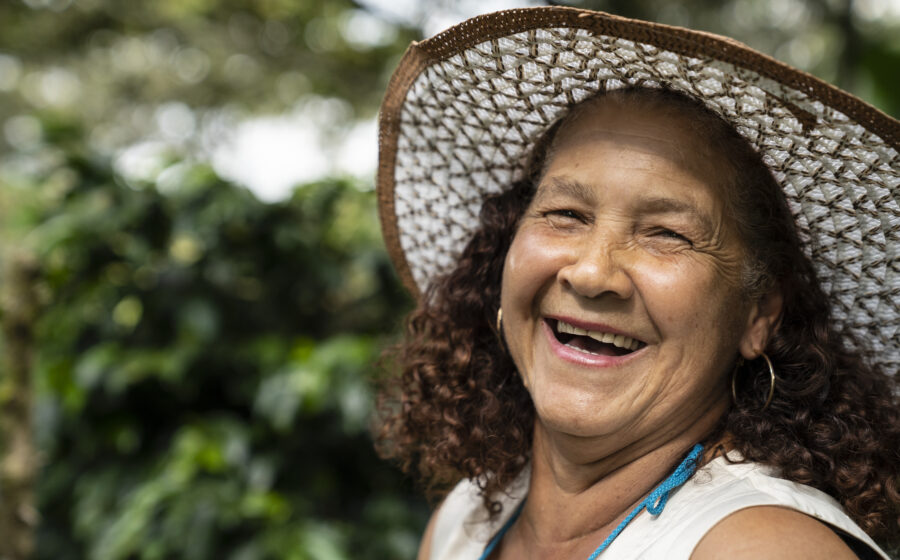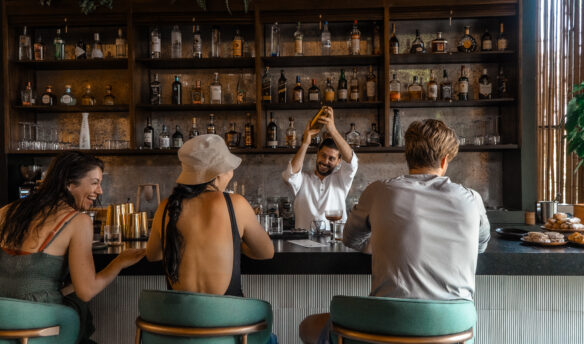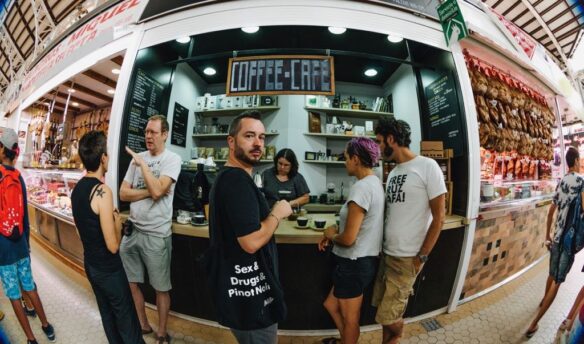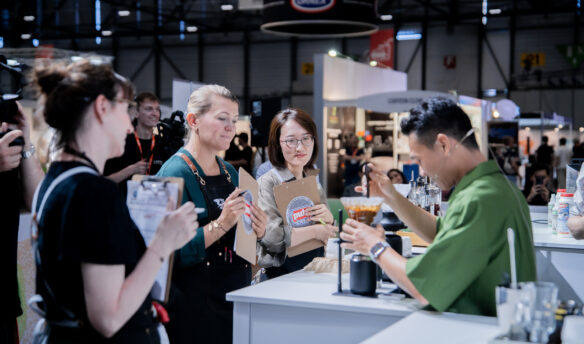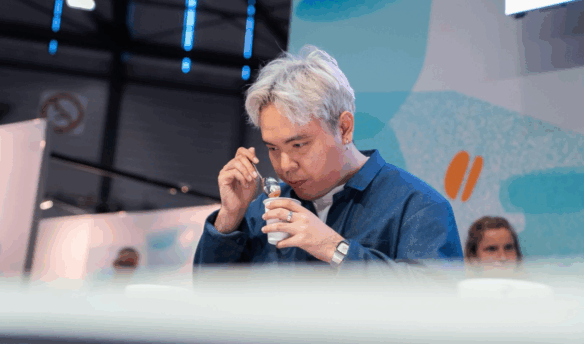Author and photographer Lucia Bawot has long championed women coffee farmers in her native Colombia. In 2023, she chronicled their stories in “We Belong: An Anthology of Colombian Women Coffee Farmers.”
“I wanted the book to let women tell their stories,” Bawot said in a 2023 interview with Fresh Cup. “Because we need to get to know each other as humans before we can think about talking about coffee.”
Her work didn’t end there, however. After spending extensive time getting to know more than 60 women coffee farmers and documenting their lives, Bawot was inspired to launch the mental health initiative SANA.
SANA means “health” in Spanish, and the five-month curriculum is a psycho-social program that will provide participating women coffee farmers with teletherapy sessions, mental health education, and community support with other participants through a private WhatsApp group.
Participants will additionally have access to ongoing therapy sessions with licensed female psychologists from Colombia, all of whom have experience working with rural communities. “We are trying to hire the best of the best,” Bawot says. “It’s always recommended that when you do therapy, you do it with somebody from your culture and your gender, somebody that you identify with.” By the end of the program, participants will be better equipped to communicate assertively, process grief, and express their emotions.
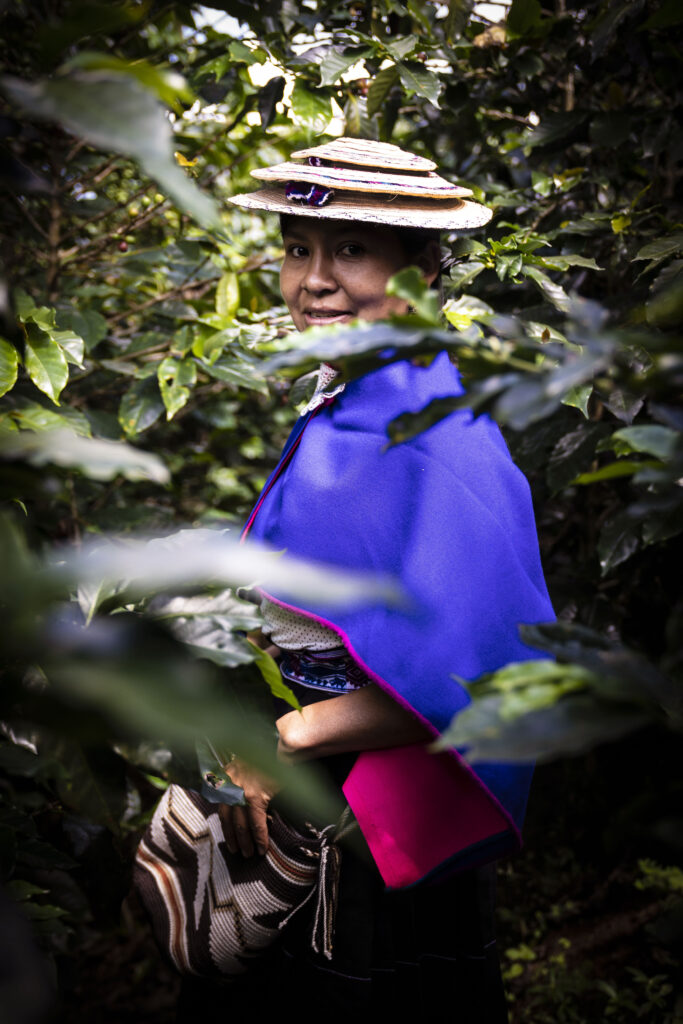
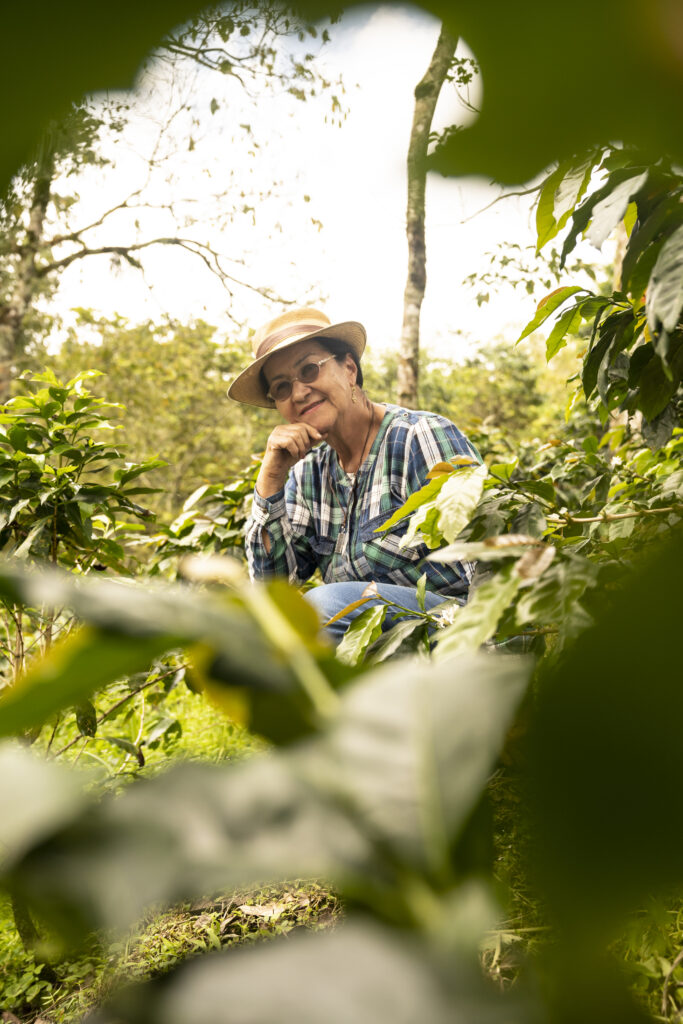
SANA is now accepting donations, facilitated by the nonprofit Bean Voyage, to support its goal of enrolling 120 women this year. Supporters can sponsor one woman for full access to the SANA program with a $25 monthly donation, or a full group of 10 women for $250 monthly. The program has already gained traction with supporters, including Estellar Coffee (owned by Alejandra Jaimes), Feliciana Coffee (owned by Paula Arango), and El Camino Coffee Roasters (owned by Ronda Melendez).
Following the launch of this groundbreaking new initiative, we caught up with Bawot to learn more about SANA—and why she believes mental health is key to gender equity..
Many of the women who have completed the pilot version of SANA, called Beans to Minds, were featured in your book. How did they react to seeing their stories in print?
When I was thinking of how to launch my book in person, we decided to do an event in Bogotá, and we brought two of the women [who were featured in the book]. They got to see how other people received the book, and [to] speak to other people.
There’s one story that really impacted me: Cristina Álvarez is a coffee picker from Concordia, Antioquia, who was at the book launch. I remember handing the book to her and asking her to look at it. She asked me, “What am I going to do now? My biggest dream was to come to Bogotá.”
For these women, the story in the book doesn’t have to define them, and they have more opportunities to dream bigger. For them it’s been transformative, not only seeing their pictures, but knowing they can be more than the woman who was interviewed for the book. It opened up their perspective of the world. All of the women have their photos printed, and I sent photos to all of the women I visited.
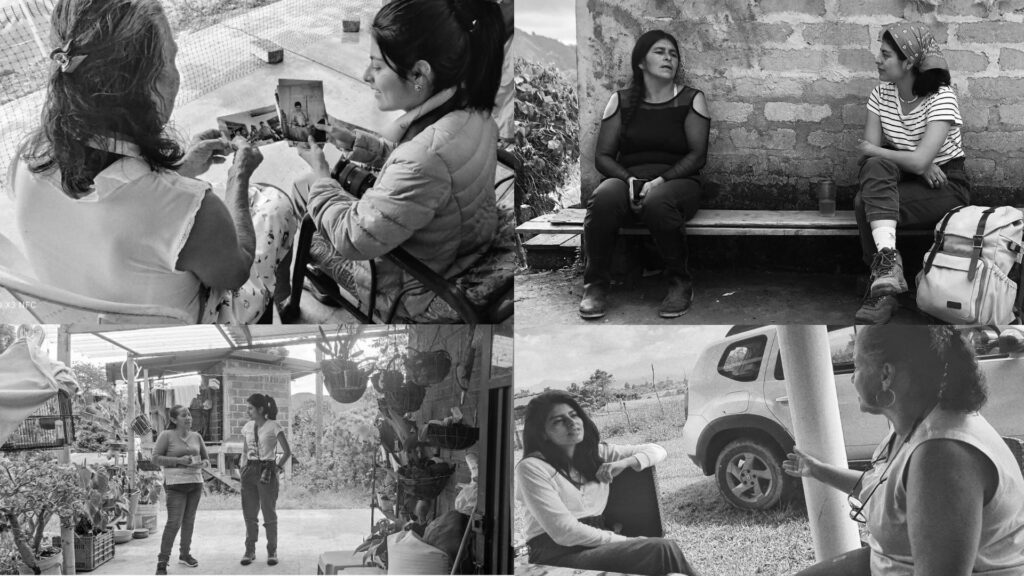
All of them told me that this was the first time that somebody actually sat down and listened to their stories, and was genuinely curious to learn how they think about the world and their role in this industry. I feel so honored when they say that.
How did your work on “We Belong” lead you to create Beans to Minds, and now SANA?
I’ve been a photographer creating content for other coffee companies for many years, and one of my biggest criticisms is that there’s often no clarity on the consent or use of images. Storytelling is a strategy for sales, but farmers don’t get paid when clients go and take photos and document their lives, and they use that content to sell and promote coffee.
When I started working on my book, I knew I could not do it the same way. I signed an agreement with each woman that I visited. It was very clear how I would be using the photos I was taking and that I had some commitments. I was going to donate a percentage of book sales back to the women.
Once I collected the proceeds from my book, I thought about how I wanted to send the money. Sending it just as money seemed so transactional, and I had built such strong relationships with all of these women. I started thinking about my trips, and how the interview process often seemed like a therapy session, because these women would really open up emotionally, and they often told me at the end of our interview that this was the first time they were sharing something, or saying it out loud. They would tell me that they felt relieved.
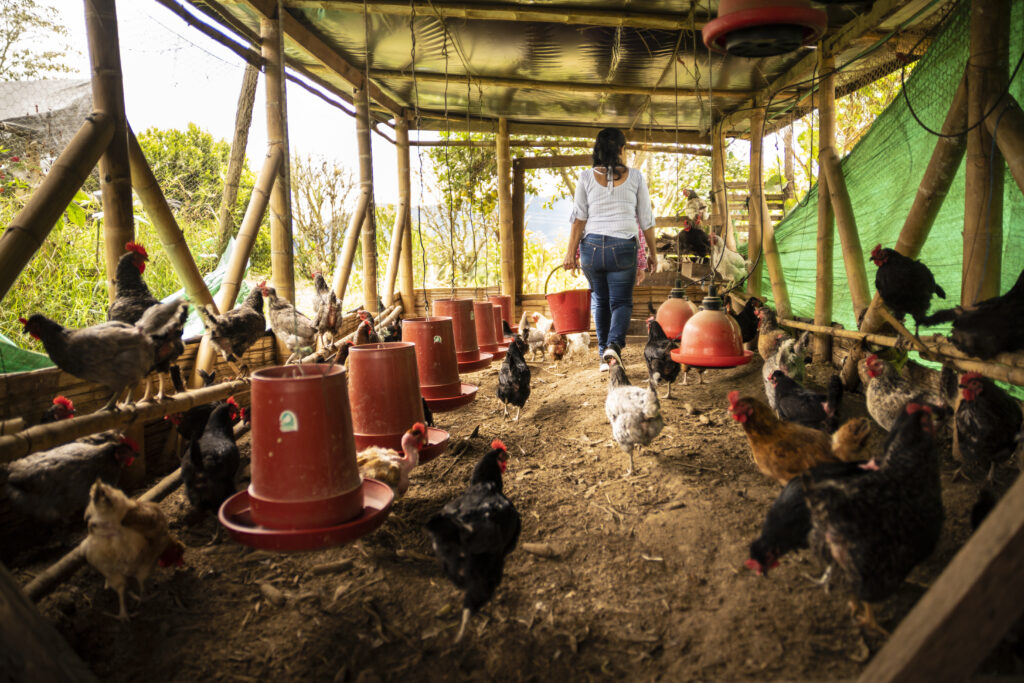
I’ve gone through my own mental challenges, so I’m a big advocate for mental health. Without mental health, it doesn’t matter how much money we have. I wanted a program that was really designed for them, but I couldn’t find any initiative or organization that was doing this. That was how the idea of the pilot began. It began just as a commitment—I never thought about making it into a more structured organization and scaling it up.
I designed the model as best I could, hiring psychologists to help me tailor the components of the program. When I started inviting these women to join the pilot, I was a little bit apprehensive, to be honest. I was a little worried that they might get scared, but in my heart, I think they knew they needed it.
The 2023 pilot program, Beans to Minds, was hugely successful, with every participant feeling heard and supported, and 92% reporting being able to resolve personal challenges. How will you be expanding that trial with SANA’s new five-month curriculum?
Currently, we are executing programs with women in Nariño, Huila, Santander, and Tolima. Right now we are working with 34 women, and we hope to expand that to reach 120 women by the end of the year.
When designing the curriculum, we have to keep in mind the cultural and social context. That’s why it’s all virtual. A lot of people told me they didn’t think I would be able to execute this virtually, and the technology infrastructure is not there to meet these women’s needs, but we proved them wrong.
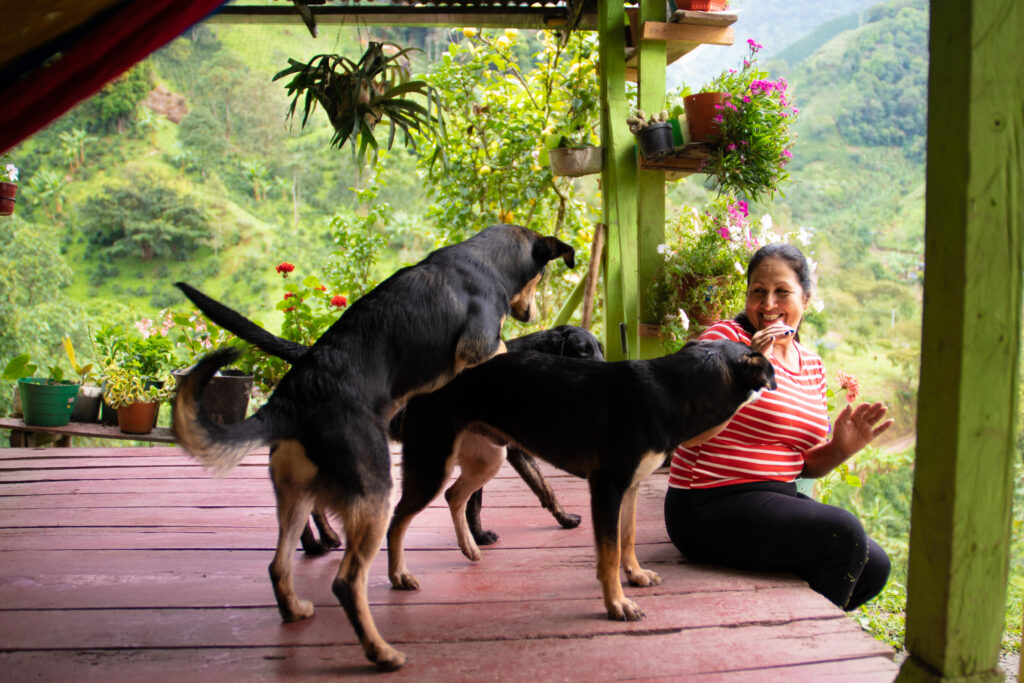
A lot of women coffee farmers and coffee pickers don’t have time for themselves. They’re doing so much farm labor, drying, post-processing, but also cooking for workers, taking care of kids and households. How can I ask these women to take four hours out of their day to travel to see a psychologist? We have to bring and provide the support to their houses, so it’s easier to fit into their schedule and they can do it in the privacy of their homes in a safe environment. And nobody is going to judge.
We also provide technology allowances, so they can pay for data plans. It’s so important to have the initial pre-program survey call so we can get to know them deeply and make the program easier and more accessible for them. Along with teletherapy sessions, we are also creating content related to mental health and wellness that we are sharing through a WhatsApp group.
You’re currently working with three cohorts of women. Why is the aspect of community such an important element of SANA’s programming?
Data has shown that to be able to make changes in your mental health, you have to do a lot of individual work, but you also have to be held by a community. Each cohort, in these virtual communities, has at least 10 women, and we name them by flowers, like sunflowers or orchids. This is so we foster a sense of belonging. A lot of these women love gardening, and so when I was designing the program, I was thinking about how we would organize the groups. I immediately thought of flowers.

A big misconception about mental health is that it’s just seeing a therapist. When you’re reaching a community when most of them haven’t even tried to do any sort of mental health work, you cannot offer only therapy, because that’s not going to work. The way we work with SANA, we are a psycho-social program. We are not diagnosing or doing treatment—it’s really the opposite. We want to be the starting point of their mental health journey.
We start by explaining what mental health is, why it is important, what to expect from psychologist sessions, [and] what is normal to feel after going to a therapy session. We really make sure these women have all the information they need to move through each phase of the program. We are constantly learning and gathering data to make it better. And we adapt the language and content to reach a woman who lives on a farm. We offer education, teletherapy, and community-based support so they can talk to each other, share how it’s going, and know that they are going through this journey with other women, and they are not alone.
How is SANA helping to tackle issues of gender inequity?
There are a lot of initiatives that have been trying to help women, promoting or marketing women-produced coffee. But I don’t believe that we are going deep enough, and we’re not getting to the root cause of the inequities. Gender equity starts from within, our emotional and psychological health. If you don’t know how much you are worth, or how to express and process your emotions, then how will you be able to see anything more in front of you?
The pilot program made it so clear to me that gender equity is mental health. There’s an intrinsic connection there that cannot be separated.
Photos courtesy of Lucia Bawot



